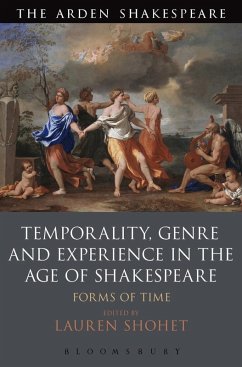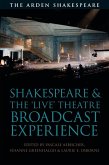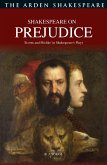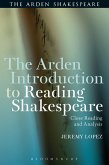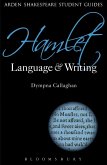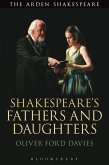Temporality, Genre and Experience in the Age of Shakespeare (eBook, ePUB)
Forms of Time
Redaktion: Shohet, Lauren
29,95 €
29,95 €
inkl. MwSt.
Sofort per Download lieferbar

15 °P sammeln
29,95 €
Als Download kaufen

29,95 €
inkl. MwSt.
Sofort per Download lieferbar

15 °P sammeln
Jetzt verschenken
Alle Infos zum eBook verschenken
29,95 €
inkl. MwSt.
Sofort per Download lieferbar
Alle Infos zum eBook verschenken

15 °P sammeln
Temporality, Genre and Experience in the Age of Shakespeare (eBook, ePUB)
Forms of Time
Redaktion: Shohet, Lauren
- Format: ePub
- Merkliste
- Auf die Merkliste
- Bewerten Bewerten
- Teilen
- Produkt teilen
- Produkterinnerung
- Produkterinnerung

Bitte loggen Sie sich zunächst in Ihr Kundenkonto ein oder registrieren Sie sich bei
bücher.de, um das eBook-Abo tolino select nutzen zu können.
Hier können Sie sich einloggen
Hier können Sie sich einloggen
Sie sind bereits eingeloggt. Klicken Sie auf 2. tolino select Abo, um fortzufahren.

Bitte loggen Sie sich zunächst in Ihr Kundenkonto ein oder registrieren Sie sich bei bücher.de, um das eBook-Abo tolino select nutzen zu können.
Focusing on Shakespeare and his contemporaries, these original essays by leading scholars explore how theatrical, aesthetic, and linguistic forms engage early modern experiences of temporality.
Encompassing comedy, tragedy, history, and romance, some contributions consider how different models of pastness, presentness, sequentiality, memory, and historical meaning underwrite particular representational practices. Others, conversely, investigate how aesthetic forms afforded diverse ways for early-modern people to understand or experience time - and how this can impact us today.
- Geräte: eReader
- mit Kopierschutz
- eBook Hilfe
- Größe: 5MB
Andere Kunden interessierten sich auch für
![Shakespeare and the 'Live' Theatre Broadcast Experience (eBook, ePUB) Shakespeare and the 'Live' Theatre Broadcast Experience (eBook, ePUB)]() Shakespeare and the 'Live' Theatre Broadcast Experience (eBook, ePUB)25,95 €
Shakespeare and the 'Live' Theatre Broadcast Experience (eBook, ePUB)25,95 €![New Places: Shakespeare and Civic Creativity (eBook, ePUB) New Places: Shakespeare and Civic Creativity (eBook, ePUB)]() New Places: Shakespeare and Civic Creativity (eBook, ePUB)29,95 €
New Places: Shakespeare and Civic Creativity (eBook, ePUB)29,95 €![Shakespeare on Prejudice (eBook, ePUB) Shakespeare on Prejudice (eBook, ePUB)]() B. J. SokolShakespeare on Prejudice (eBook, ePUB)25,95 €
B. J. SokolShakespeare on Prejudice (eBook, ePUB)25,95 €![The Arden Introduction to Reading Shakespeare (eBook, ePUB) The Arden Introduction to Reading Shakespeare (eBook, ePUB)]() Jeremy LopezThe Arden Introduction to Reading Shakespeare (eBook, ePUB)20,95 €
Jeremy LopezThe Arden Introduction to Reading Shakespeare (eBook, ePUB)20,95 €![Hamlet: Language and Writing (eBook, ePUB) Hamlet: Language and Writing (eBook, ePUB)]() Dympna CallaghanHamlet: Language and Writing (eBook, ePUB)17,95 €
Dympna CallaghanHamlet: Language and Writing (eBook, ePUB)17,95 €![Shakespeare's Fathers and Daughters (eBook, ePUB) Shakespeare's Fathers and Daughters (eBook, ePUB)]() Oliver Ford DaviesShakespeare's Fathers and Daughters (eBook, ePUB)22,95 €
Oliver Ford DaviesShakespeare's Fathers and Daughters (eBook, ePUB)22,95 €![Shakespeare (eBook, ePUB) Shakespeare (eBook, ePUB)]() Peter ConradShakespeare (eBook, ePUB)11,95 €
Peter ConradShakespeare (eBook, ePUB)11,95 €-
-
-
Focusing on Shakespeare and his contemporaries, these original essays by leading scholars explore how theatrical, aesthetic, and linguistic forms engage early modern experiences of temporality.
Encompassing comedy, tragedy, history, and romance, some contributions consider how different models of pastness, presentness, sequentiality, memory, and historical meaning underwrite particular representational practices. Others, conversely, investigate how aesthetic forms afforded diverse ways for early-modern people to understand or experience time - and how this can impact us today.
Encompassing comedy, tragedy, history, and romance, some contributions consider how different models of pastness, presentness, sequentiality, memory, and historical meaning underwrite particular representational practices. Others, conversely, investigate how aesthetic forms afforded diverse ways for early-modern people to understand or experience time - and how this can impact us today.
Produktdetails
- Produktdetails
- Verlag: Bloomsbury UK eBooks
- Seitenzahl: 344
- Erscheinungstermin: 22. Februar 2018
- Englisch
- ISBN-13: 9781350017313
- Artikelnr.: 50925714
- Verlag: Bloomsbury UK eBooks
- Seitenzahl: 344
- Erscheinungstermin: 22. Februar 2018
- Englisch
- ISBN-13: 9781350017313
- Artikelnr.: 50925714
- Herstellerkennzeichnung Die Herstellerinformationen sind derzeit nicht verfügbar.
Lauren Shohet is Luckow Family Professor of English at Villanova University, USA and the author of Reading Masques: The English Masque and Public Culture in the Seventeenth Century (2010). Her writing on early modern poetry, drama, and form has focused on Milton, Marvell, Jonson, and Shakespeare, appearing in such journals as Poetics Today, Milton Studies, Shakespeare Studies, the Journal of Early Modern Cultural Studies, and the Yearbook of English Studies. She is coeditor of Gathering Force: British Literature in Transition 1557-1623 and of the first volume of the forthcoming three-volume British Literature in Transition 1557-1680 (general editor Stephen Dobranski, 2017). She has held fellowships and appointments from the National Endowment for the Humanities (USA), the Folger Shakespeare Library, the Huntington Library, and Freiburg Institute of Advanced Studies (Germany).
List of Illustrations Notes on Contributors Acknowlegements Note on Texts 1. Introduction: Forms of Time (Lauren Shohet
Villanova University
USA) Part One: Illuminating 2. Shakespeare's theater of comic time (Kent Cartwright
University of Maryland
College Park
USA) 3. Suspense Revisited: The Shared Experience of Time (Raphael Falco
University of Maryland
USA) 4. "In the Course and Process of Time": Rupture
Reflection and Repetition in Henry VIII (Philip Lorenz
Cornell University
USA) Part Two: Synthesizing 5. Is Henry V still a history play? (Andrew Griffin
University of California
Santa Barbara
USA) 6. Allusion
Temporality
and Genre in Pericles and Troilus and Cressida (Lauren Shohet
Villanova University
USA) Part Three: Misaligning 7. Love's Labours Lost and the Layered Temporality of Poetic Reception (Matthew Harrison
Albion College
USA) 8. Timing The Knight of the Burning Pestle: Genre
Style
and Performance (Lucy Munro
King's College
London
UK) 9. Time
Tragedy and the Text of Antony and Cleopatra (Rebecca Bushnell
University of Pennsylvania
USA) Part Four: Proliferating 10. "The Death of Fathers": Succession and Diachronic Time in Shakespearean Tragedy (William C. Carroll
Boston University
USA) 11. Passionate Time in Elizabeth Cary's The Tragedy of Mariam (Lara Dodds
University of Mississippi
USA) 12. Future Histories in King Lear (Meredith Beales
University of Victoria
Canada) Part Five: Pleating 13. Last Judgement to Leviathan: The Semiotics of Collective Temporality in Early Modern England (Robin Scott Stewart
University of California
Irvine
USA) 14. Cymbeline
Janus
and Folded Time (Valerie Wayne
University of Hawaii
USA) Notes Index
Villanova University
USA) Part One: Illuminating 2. Shakespeare's theater of comic time (Kent Cartwright
University of Maryland
College Park
USA) 3. Suspense Revisited: The Shared Experience of Time (Raphael Falco
University of Maryland
USA) 4. "In the Course and Process of Time": Rupture
Reflection and Repetition in Henry VIII (Philip Lorenz
Cornell University
USA) Part Two: Synthesizing 5. Is Henry V still a history play? (Andrew Griffin
University of California
Santa Barbara
USA) 6. Allusion
Temporality
and Genre in Pericles and Troilus and Cressida (Lauren Shohet
Villanova University
USA) Part Three: Misaligning 7. Love's Labours Lost and the Layered Temporality of Poetic Reception (Matthew Harrison
Albion College
USA) 8. Timing The Knight of the Burning Pestle: Genre
Style
and Performance (Lucy Munro
King's College
London
UK) 9. Time
Tragedy and the Text of Antony and Cleopatra (Rebecca Bushnell
University of Pennsylvania
USA) Part Four: Proliferating 10. "The Death of Fathers": Succession and Diachronic Time in Shakespearean Tragedy (William C. Carroll
Boston University
USA) 11. Passionate Time in Elizabeth Cary's The Tragedy of Mariam (Lara Dodds
University of Mississippi
USA) 12. Future Histories in King Lear (Meredith Beales
University of Victoria
Canada) Part Five: Pleating 13. Last Judgement to Leviathan: The Semiotics of Collective Temporality in Early Modern England (Robin Scott Stewart
University of California
Irvine
USA) 14. Cymbeline
Janus
and Folded Time (Valerie Wayne
University of Hawaii
USA) Notes Index
List of Illustrations Notes on Contributors Acknowlegements Note on Texts 1. Introduction: Forms of Time (Lauren Shohet
Villanova University
USA) Part One: Illuminating 2. Shakespeare's theater of comic time (Kent Cartwright
University of Maryland
College Park
USA) 3. Suspense Revisited: The Shared Experience of Time (Raphael Falco
University of Maryland
USA) 4. "In the Course and Process of Time": Rupture
Reflection and Repetition in Henry VIII (Philip Lorenz
Cornell University
USA) Part Two: Synthesizing 5. Is Henry V still a history play? (Andrew Griffin
University of California
Santa Barbara
USA) 6. Allusion
Temporality
and Genre in Pericles and Troilus and Cressida (Lauren Shohet
Villanova University
USA) Part Three: Misaligning 7. Love's Labours Lost and the Layered Temporality of Poetic Reception (Matthew Harrison
Albion College
USA) 8. Timing The Knight of the Burning Pestle: Genre
Style
and Performance (Lucy Munro
King's College
London
UK) 9. Time
Tragedy and the Text of Antony and Cleopatra (Rebecca Bushnell
University of Pennsylvania
USA) Part Four: Proliferating 10. "The Death of Fathers": Succession and Diachronic Time in Shakespearean Tragedy (William C. Carroll
Boston University
USA) 11. Passionate Time in Elizabeth Cary's The Tragedy of Mariam (Lara Dodds
University of Mississippi
USA) 12. Future Histories in King Lear (Meredith Beales
University of Victoria
Canada) Part Five: Pleating 13. Last Judgement to Leviathan: The Semiotics of Collective Temporality in Early Modern England (Robin Scott Stewart
University of California
Irvine
USA) 14. Cymbeline
Janus
and Folded Time (Valerie Wayne
University of Hawaii
USA) Notes Index
Villanova University
USA) Part One: Illuminating 2. Shakespeare's theater of comic time (Kent Cartwright
University of Maryland
College Park
USA) 3. Suspense Revisited: The Shared Experience of Time (Raphael Falco
University of Maryland
USA) 4. "In the Course and Process of Time": Rupture
Reflection and Repetition in Henry VIII (Philip Lorenz
Cornell University
USA) Part Two: Synthesizing 5. Is Henry V still a history play? (Andrew Griffin
University of California
Santa Barbara
USA) 6. Allusion
Temporality
and Genre in Pericles and Troilus and Cressida (Lauren Shohet
Villanova University
USA) Part Three: Misaligning 7. Love's Labours Lost and the Layered Temporality of Poetic Reception (Matthew Harrison
Albion College
USA) 8. Timing The Knight of the Burning Pestle: Genre
Style
and Performance (Lucy Munro
King's College
London
UK) 9. Time
Tragedy and the Text of Antony and Cleopatra (Rebecca Bushnell
University of Pennsylvania
USA) Part Four: Proliferating 10. "The Death of Fathers": Succession and Diachronic Time in Shakespearean Tragedy (William C. Carroll
Boston University
USA) 11. Passionate Time in Elizabeth Cary's The Tragedy of Mariam (Lara Dodds
University of Mississippi
USA) 12. Future Histories in King Lear (Meredith Beales
University of Victoria
Canada) Part Five: Pleating 13. Last Judgement to Leviathan: The Semiotics of Collective Temporality in Early Modern England (Robin Scott Stewart
University of California
Irvine
USA) 14. Cymbeline
Janus
and Folded Time (Valerie Wayne
University of Hawaii
USA) Notes Index
